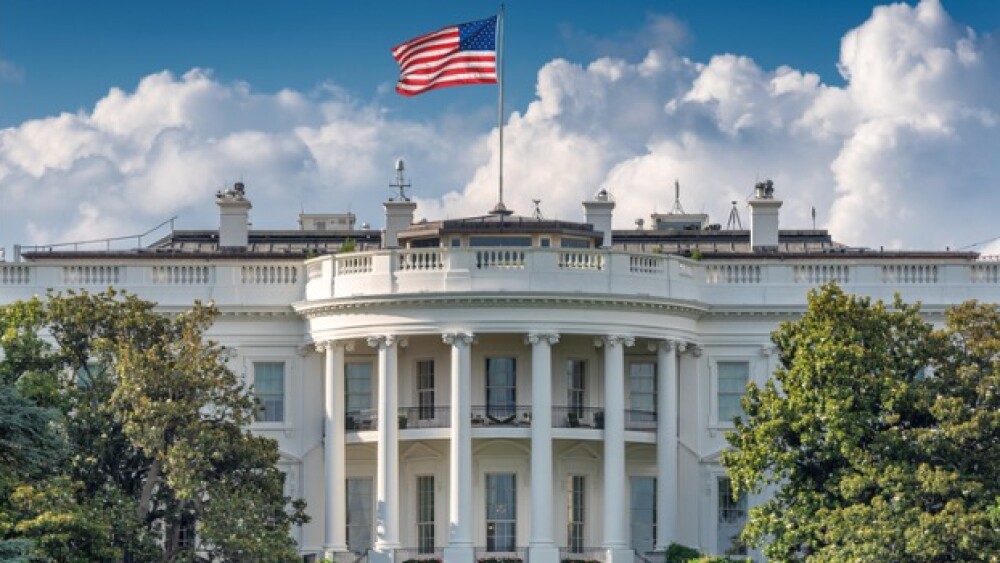Following a nine-month review, the Biden administration will issue a framework for the National Institutes of Health to implement so-called “march-in rights” under the Bayh-Dole Act of 1980.
Pictured: Front view of the White House/iStock, lucky-photographer
The Biden administration has determined that it can invoke so-called “march-in rights” to take back patents of specific expensive medicines that rely on federally funded research, Politico and STAT News reported Wednesday, citing three sources familiar with the matter who requested anonymity.
The White House will not promote the widespread use of these march-in rights, nor is it likely to wield this authority against any individual pharmaceutical product, according to the sources.
Instead, the Biden administration will issue guidelines that the National Institutes of Health can use in determining whether it will seize back patents from pharma companies with products produced from federally funded research. Some of the factors that NIH can take into consideration include the price of the product and its availability to the public.
The proposed framework for the march-in authority will be issued on Thursday by the Department of Commerce, which will open it up for public feedback, according to the sources.
Under the Bayh-Dole Act of 1980, the federal government retains residual rights over inventions produced using federally funded research, which allows under certain reasonable terms to grant licenses to third-party developers to make the benefits of these inventions available to the public.
In March 2023, the Department of Health and Human Services (HHS), alongside the Department of Commerce, launched a review to assess these march-in rights and come up with guidelines for invoking this authority, including a clear outline of the criteria and processes for its implementation.
At the time, HHS secretary Xavier Becerra in a statement called the march-in authority a “powerful tool” that will help “ensure that the benefits of the American taxpayer’s investment in research and development are reasonably accessible to the public.”
Biopharma companies and other industry groups are expected to fiercely oppose the initiative.
“The unprecedented use of march-in rights, which will likely be abused, will cause irreparable damage, hurt medical innovation, and dissuade biopharmaceutical companies from spending their valuable research dollars on future cures. That will hurt patients, slow economic growth, and destroy America’s global leadership in biopharmaceutical research and development,” the watchdog group Citizens Against Government Waste said in a statement Tuesday.
The Pharmaceutical Research and Manufacturers of America has warned about the “potential devastating impacts of rewriting the march-in provision to allow the government to seize patent rights solely on the basis of product pricing.”
The new approach to the government’s march-in authority comes as the Biden administration continues its campaign to lower drug prices. In August 2022, President Biden signed the Inflation Reduction Act (IRA) into law, seeking to generate $25 billion in drug cost savings over the next eight years.
Under the IRA, the Centers for Medicare and Medicaid Services will be able to renegotiate the prices of some of the most widely used prescription medications, with the new pricing to take effect in 2026. In August 2023, CMS released the list of the first 10 drugs that will be impacted by the Medicare Drug Price Negotiation Program, including BMS’ blood thinner Eliquis (apixaban) and Lilly’s diabetes medication Jardiance (empagliflozin).
Tristan Manalac is an independent science writer based in Metro Manila, Philippines. He can be reached at tristan@tristanmanalac.com or tristan.manalac@biospace.com.






